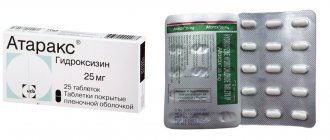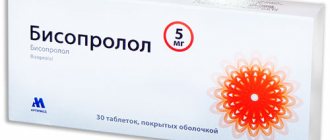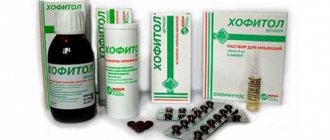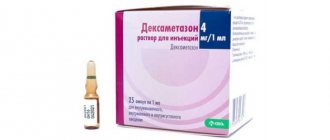Category: Published 04/09/2017 · Comments: · Reading time: 7 min · Views: 4,992
A modern antibacterial agent from the tetracycline subgroup is Unidox Solutab tablets. What does this antibiotic help with? The drug is capable of providing a long-lasting therapeutic effect, which makes it a popular antibacterial agent. The instructions for use recommend the product "Unidox Solutab" for the relief of inflammatory symptoms that accompany many pathologies provoked by pathogens of an infectious nature.
Compound
The main component of Unidox is doxycycline monohydrate . Each tablet contains 0.1 g (100 mg) of doxycycline. The antibiotic also includes the following excipients:
- magnesium stearate;
- low-substituted hyprolose;
- saccharin;
- hypromellose;
- microcrystalline cellulose;
- colloidal anhydrous magnesium dioxide;
- lactose monohydrate.
The tablets are packaged in cardboard boxes, each of which contains one blister containing 10 tablets.
Unidox for cystitis
It is recommended to take the medicine with a large (about a glass) amount of water (to prevent side effects from the stomach), and it is better to be in a standing position. You need to choose a time: morning, afternoon or evening. The latter is not recommended due to the likelihood of discomfort and unusual sensations, which are especially noticeable in the evening and can interfere with sleep.
The dosage should always be constant; it should not be increased or decreased.
It is not advisable to be exposed to sunlight during the course. Antibiotics sometimes provoke increased photosensitivity.
It is recommended to take one tablet every day, but if cystitis has become chronic or recurs, the dose can be increased to two tablets per day.
Release form
The release form of the medicine is biconvex round yellow tablets. One side of each tablet contains the inscription “173”, and the other has a notch.
pharmachologic effect
- Doxycycline stops the proliferation of pathogenic microorganisms . Under its influence, protein synthesis is disrupted in bacterial cells. The antibiotic Unidox Solutab has a wide spectrum of action, although some pathogens of infectious diseases have lost sensitivity to the drug.
- The medicine is effective against coccal infections . This applies to entero-, pneumo- and staphylococci of the gram-positive type. It also destroys moraxella and menincococci. However, Unidox Solutab does not affect the vital activity of gonococci.
- In addition, doxycycline suppresses the pathogens of letospirosis, chlamydia and mycoplasmosis . It also copes with spirochetes, actinomycetes, rickettsia and borellia .
- The active component has a detrimental effect on listeria, cholera and other types of vibrios, yersinia (for example, the causative agent of plague), and anthrax bacterium . It has been scientifically proven that Unidox Salutab treats inguinal granuloma .
At the same time, it has no effect against salmonellosis, enterobacterial infections, shigellosis, Klebsiella and E. coli infections.
- The antibiotic copes with anaerobic bacteria , for example, clostridia, fusobacteria and propionibacteria.
Pharmacokinetic properties
The product is well absorbed. Moreover, the effectiveness and degree of absorption are not related to food intake. The maximum amount of the main substance in the blood is observed within an hour or three after consuming the product.
Doxycycline also accumulates in tissues. More than in the blood, it can be found in bile (20%) and cerebrospinal fluid (25%).
During pregnancy, the medicine passes from the mother's body to the developing child through the placenta. It has also been found in breast milk. Exited through the digestive tube. The half-life of the drug used is twenty hours.
pharmachologic effect
The antibiotic is a long-acting broad-spectrum tetracycline. It acts bacteriostatically, suppresses protein synthesis in the microbial cell by interacting with the 30S ribosomal subunit.
Active against gram-positive and gram-negative aerobic and anaerobic bacteria: Streptococcus spp., Staphylococcus spp., Klebsiella spp., Enterobacter spp. (including Enterobacter aerugenes), Neisseria gonorrhoeae, Neisseria meningitidis, Haemophilus influenzae, Chlamydia spp., Mycoplasma spp., Ureaplasma urealyticum, Listeria monocytogenes, Rickettsia spp. (including Rickettsia prowazekii), Escherichia coli, Shigella spp., Campylobacter fetus, Vibrio cholerae, Yersinia spp. (including Yersinia pestis), Brucella spp., Francisella tularensis, Bacillus anthracis, Bartonella bacilliformis, Pasteurella multocida, Borrelia recurrentis, Clostridium spp. (except Clostridium difficile), Actinomyces spp., Fusobacterium fusiforme, Calymmatobacterium granulomatosis, Propionibacterium acnes, Treponema spp., Typhus exanthematicus; some protozoa: Entamoeba spp., Plasmodium falciparum.
As a rule, not active against Acinetobacter spp., Proteus spp., Pseudomonas spp., Serratia spp., Providencia spp., Enterococcus spp.
The possibility of acquired resistance to doxycycline in a number of pathogens, which is often cross-linked within a group, should be taken into account (i.e., strains resistant to doxycycline will simultaneously be resistant to the entire group of tetracyclines).
Indications for use
Why is the drug prescribed? Below it is written what Unidox Solutab helps with:
- sexually transmitted diseases - syphilis, gonorrhea, granuloma (inguinal and lymphatic);
- chlamydosis and its complications - inflammation of the urethra, cervical canal, prostate gland, trachoma and psittacosis;
- mycoplasmosis;
- rosacea (rosacea);
- inflammation of the bladder - cystitis;
- Lyme disease, relapsing fever and other forms of borelliosis;
- diseases caused by rickettsia;
- zoonotic diseases of bacterial origin, which include anthrax, plague, tularemia, brucellosis and leptospirosis;
- infection of the respiratory tract (lower) - atypical community-acquired pneumonia; exacerbation of chronic inflammatory process in the bronchi;
- female diseases - inflammation of the ovaries, tubes, endometrium, appendages;
- infections of the gastrointestinal tract, including cholera and yersiniosis;
- benign lymphoreticulosis - a consequence of scratches caused by domestic cats;
- acute inflammatory lesions of the lacrimal sacs;
- wound infection and consequences of bites from wild and domestic animals;
- preventing malaria for residents of tropical areas.
Unidox Solutab - indications
Unidox Solutab tablets are prescribed exclusively by a doctor. The decision on the need to use the medicine is made based on the clinical picture, symptoms of the disease and the results of bacteriological examination. Cases when there is a need to use medication are different. Doctors can prescribe Unidox Solutab for acne and acne; doctors often use Unidox Solutab in gynecology.
Among the main indications for using Unidox:
- community-acquired pneumonia, including forms caused by atypical pathogens;
- exacerbation of chronic bronchitis;
- uncomplicated urethral infections;
- lymphogranuloma venereum;
- nongonococcal urethritis
- syphilis;
- Lyme disease;
- leptospirosis;
- brucellosis;
- rickettsiosis;
- anthrax virus.
Contraindications
Not everyone can take the medicine. Doctors categorically prohibit it:
- children under eight years of age;
- liver patients, if the pathological process is severe;
- women during pregnancy and breastfeeding.
What medications are prescribed for ureaplasmosis?
In the treatment of ureaplasmosis, the same fundamental principle is applied as in the treatment of any other urogenital infection. First-line drugs are considered to be tetracycline antibiotics, which are prescribed by a doctor after analyzing the individual characteristics of the patient. What he can take into account:
- the presence of allergic irritations;
- the degree of sensitivity of this type of pathogen to the prescribed antibiotic drug;
- medical history;
- concomitant diseases in chronic form;
- certain human conditions (bearing a child, breastfeeding, etc.);
- serious somatic disorders.
On average, the duration of drug treatment is 2-2.5 weeks. During therapy, monitoring of the peripheral blood composition is necessary for the reason that antibiotic drugs from the tetracycline series tend to change the ratio of leukocytes (provoke the development of leukocytopenia) and platelets (thrombocytopenia). During the period before surgical treatment, drug therapy is not prescribed. Because these medications tend to cause bleeding. The main medicine prescribed by the doctor is Unidox salutab (Doxycycline). The course of treatment is a week. After that, repeated laboratory diagnostics are performed to determine the success of the therapy. In a situation where the antibiotic turns out to be ineffective, stop taking it.
Another medicine is prescribed instead. For example, in case of an allergic reaction to salutab, a medicine from the macrolide group may be prescribed. Treatment of ureaplasmosis is always comprehensive. In this case, complementary treatment methods are shown:
- restorative therapy;
- immunomodulation (since ureaplasmosis is often detected at an already serious stage);
- probiotics, which are prescribed to normalize the state of intestinal microflora (antibiotics negatively affect beneficial intestinal bacteria).
If ureaplasmosis is detected and its subsequent treatment, this pathology should be excluded from the sexual partner. The second one is also necessarily examined and further preventive or medicinal therapy is carried out for him.
Directions for use and doses
- Adolescents 12 years of age and older and adults weighing more than 50 kilograms should take 200 mg once or twice daily on the first day. Then the dose is reduced by half. For severe infections, the daily dosage should be maintained at 200 mg.
- Adolescents over 12 years of age weighing less than 50 kilograms take 4 mg per kilogram of body weight on the first day. The medicine is taken once a day before or after meals. Then the amount of the drug is reduced by half, and in severe cases the original dosage remains.
Children and adults need to be treated for a week to a week and a half. The doctor will tell you how to take the medicine and how many days to treat, taking into account the individual characteristics of the patient and the course of the pathology.
- For diseases of the genitourinary tract , for example, cystitis, you need to be treated for a week to a week and a half, taking 200 mg per day.
- Gonorrhea in women is treated with 200 mg of the drug daily for five days; in men, the daily dose is similar or 1.5 times higher. The course of treatment lasts from 2 to 4 days. You can also take 300 mg twice a day.
- Syphilis of the first and second stages is treated with a daily dose of 300 mg. The course of therapy is 1.5 weeks. How long it takes for recovery to occur depends on the individual characteristics of the patient.
- Patients with typhus are recommended to take 1 - 2 tablets once, depending on the course of the disease.
- For elderly people , as well as patients with liver and kidney diseases with creatinine clearance below 60 ml per minute, the amount of the drug is selected individually.
The drug is taken simultaneously with food. The tablets are swallowed without chewing, or chewed and divided into parts. Be sure to drink water. It can also be dissolved in water to form a syrup (with 0.1 cups of water) or a suspension (if the liquid is 0.5 cups).
special instructions
There is a possibility of cross-resistance and hypersensitivity with other tetracycline drugs.
Tetracyclines may increase prothrombin time; the use of tetracyclines in patients with coagulopathies should be carefully monitored.
The anti-anabolic effect of tetracyclines can lead to an increase in the level of residual urea nitrogen in the blood. As a rule, this is not significant for patients with normal renal function. However, in patients with renal failure, an increase in azotemia may occur. The use of tetracyclines in patients with impaired renal function requires medical supervision.
With long-term use of the drug, periodic monitoring of laboratory blood parameters, liver and kidney function is required.
Due to the possible development of photodermatitis, it is necessary to limit insolation during treatment and for 4-5 days after it.
Long-term use of the drug can cause dysbacteriosis and, as a result, the development of hypovitaminosis (especially B vitamins).
To prevent dyspeptic symptoms, it is recommended to take the drug with meals.
Impact on the ability to drive vehicles and operate machinery
The specific effects on the ability to drive a car and operate machinery have not been studied.
Side effects
In addition to the therapeutic effect, side effects are possible. They affect various organs and systems.
- If the gastrointestinal tract is affected, patients lose their appetite, complain of diarrhea, inflammation of the intestines, vomiting, difficulty swallowing, and nausea. This is due to the proliferation of antibiotic-resistant varieties of staphylococci.
- Some symptoms are related to biological effects, such as thrush due to proliferation. The main manifestations are diarrhea, inflammation of the tongue, oral cavity, rectum and vagina in women.
- Skin rashes, exfoliative inflammation, increased photosensitivity.
- Allergies: angioedema type, utricarial rashes, anaphylactic shock, inflammation of the pericardium. Patients may also develop systemic lupus erythematosus.
- Lesions of the hematopoietic system: thrombocyto- and neutropenia, hemolytic anemia, eosinophilia.
Following the instructions for use of Unidox Solutab and following medical prescriptions will help you avoid the appearance of unpleasant symptoms.
Unidox Solutab - side effects
Thanks to clinical trials, experts have studied the side effects of Unidox Solutab in detail. In most cases, the development of side effects was provoked by an increase in dosage or a change in the frequency of taking the medication.
Common side effects include:
- blood disorders: anemia, neutropenia, thrombocytopenia;
- damage to the reproductive system: vaginitis, candidiasis;
- from the immune system: drug rash, hypersensitivity reactions, anaphylactic shock;
- endocrine disorders: staining of thyroid tissue (with long-term use).
Drug interactions
The instructions for Unidox Solutab note the low compatibility of the drug with some medications.
- Simultaneous use with bactericidal agents of the cephalosporin and penicillin groups leads to a decrease in the effectiveness of the tablets.
- Combining antibiotics with tetracyclines and medications with iron salts, antacids and metal ions leads to similar consequences.
- Treatment with tetracycline antibacterial agents significantly increases the effect of anticoagulants. Therefore, their dose may have to be adjusted according to the doctor's recommendation.
- In women taking oral contraceptives, the amount of estriol decreases. Drug interactions lead to bleeding or decreased contraceptive effectiveness, so the patient may become pregnant.
- The half-life accelerates if the patient is prescribed inducers of hepatic metabolism. These are derivatives of ethyl alcohol, carbamazepine, phenytoin, and barbituric acid.
Alcohol compatibility with Unidox Solutab is completely absent, since alcoholic beverages reduce the concentration of the drug in the blood plasma and neutralize the effect of the latter.
About the problem of cystitis
Cystitis is primarily a disease that affects not only locally, that is, exclusively on the mucous membrane of the bladder, but also affects neighboring systems and organs. It entails other violations. The visible initial symptoms signaling the disease, the diagnostic process and subsequent treatment depend on various factors. These are such as the nature of the pathological process, the locality of infectious inflammation, and the type of pathogen.
You can also distinguish subtypes of cystitis. Among them:
- bacterial and non-bacterial. The causative agents in the first case are sexually transmitted diseases, E. coli, staphylococci; in the second - the consequences of medications or allergies;
- acute and chronic. Acute occurs with symptoms, chronic has a latent or recurrent nature;
- ulcerative, catarrhal;
- cystitis, which affects the submucosal layer and one that affects the muscular layer.
Usually the disease occurs for a number of reasons, of which there can be a huge number. The main ones among them are:
- hypothermia;
- violation of intimate hygiene rules or insufficient self-care;
- congestion inside the bladder;
- unbalanced diet;
- seasonal vitamin deficiency;
- postpartum conditions;
- genital infections.
Also, concomitant diseases of other neighboring systems - pulpitis, tonsillitis, intestinal dysbiosis and others - can be provocateurs of inflammation.
Analogs
Analogues are much cheaper than the indicated product. However, their composition and action may differ slightly from Unidox. You can replace tablets and capsules with the following means:
- Monocline;
- Doxibene;
- Dovicil;
- Vidoccin;
- Bassada;
- Doxal;
- Apo-doxy;
- Doxycycline Nycomed;
- Xedocin;
- Vibramycil;
- Doxidar 100.
Your doctor will tell you whether the chosen substitute can be used.
Does the drug help?
Unidox Solutab quickly helps to get rid of the unpleasant manifestations of cystitis. The therapeutic effect is explained by inhibition of synthesis and disruption of the metabolism of proteins contained in the cell membrane of pathogenic microorganisms. The drug also destroys the connection of RNA with the ribosomal membrane. The drug compares favorably with other antibiotics due to its higher activity against bacteria.
An antibiotic helps with cystitis due to the following advantages:
- Active influence on the cause of the pathological process.
- No adverse reactions.
- The beneficial properties of the substance are not lost during transportation to the source of the disease.
Reviews
Margarita, 30 years old
The first time I came across this drug was when I went to the gynecology department with women’s problems. I took the antibiotic for a week as prescribed by the doctor along with vaginal suppositories. This may seem strange, but Unidox did not cause me any side effects at all, and the treatment was successful.
Larisa, 28 years old
Although many are against treatment for ureaplasma, I do not count myself among them, because if there are signs such as nagging abdominal pain and discharge, I want to get rid of this disease as soon as possible. I was treated with Unidox Solutab together with a young man. All the doctor’s recommendations were taken responsibly, which may be why recovery came quickly.
Normal ureaplasma parvum in women
Have you been trying to get rid of PARASITES for many years?
Head of the Institute: “You will be amazed at how easy it is to get rid of parasites by taking it every day.
Ureaplasmosis is an infectious disease around which there are many controversial issues. Previously, it was believed that ureaplasmosis should be classified as a group of sexually transmitted diseases, but now most experts are of the opposite opinion. The fact is that ureaplasma is present in small quantities in the body of completely healthy people, and it does not cause any concern. We can talk about the disease if there is inflammation of the urethra, uterus or vagina. From the following article you will learn what the norm of ureaplasma is in a smear in women.
What is ureaplasma
Ureaplasmosis is an infectious disease caused by the bacterium ureaplasma. For a long time, this disease belonged to the class of sexually transmitted diseases. However, in 1998, the International Classification of Diseases was introduced in Russia. According to this classification, ureaplasmosis is considered an inflammatory process of the genitourinary tract.
Our readers successfully use Intoxic to get rid of parasites. Seeing how popular this product is, we decided to bring it to your attention. Read more here...
The reason is that uriaplasma is present in the vaginal microflora of almost 70% of women, but under normal conditions it does not develop into a disease and does not cause discomfort. Uriaplasma belongs to the category of so-called opportunistic bacteria.
If ureaplasma is detected in a woman’s body, but its quantity is below a certain level and does not develop into a disease, then the woman is said to be a carrier of the infection. In some ways, this is even worse than the disease itself. Indeed, in this case, the woman will be the spreader of the infection.
The causative agent of ureaplasmosis
Ureaplasmas are close in size to large viruses and have neither DNA nor a cell membrane. This is a small defective bacterium, its inferiority lies in the fact that during evolution it has lost its cell wall. They are sometimes considered as a kind of transitional step from viruses to bacteria.
Transmission of the infection occurs mainly through sexual contact, but intrauterine infection from a sick mother during childbirth is also possible. Also, children often become infected from their parents in early childhood through household means.
Symptoms of ureaplasmosis
It is believed that the incubation period of ureaplasmosis is about one month. However, everything depends on the initial health status of the infected person. Once in the genital tract or urethra, ureaplasma can behave quietly and not manifest itself in any way for many years.
Ureaplasmosis
Ureaplasmas are bacteria that often infect the urinary and reproductive systems of both women and men. According to available statistics, bacteria are present in 70% of women and men. Being very common, they are transmitted mainly during sexual intercourse. The infection does not qualify as a sexually transmitted disease because it can also be transmitted through contact with blood, saliva, injections and even airborne droplets. There are usually no visible symptoms, and most infected people do not know they are infected.
Symptoms
There may be no symptoms, but sometimes there is discharge, burning, frequent urination, urgency and pain in the lower abdomen. Ureaplasma can cause invasive diseases of the joints and respiratory tract with bacterial spread, especially in individuals with problems producing antibodies, indicating the importance of the humoral immune system in protecting against these microorganisms. Ureaplasma is the most common cause of abacterial infectious arthritis. Ureaplasmic bacteremia has been demonstrated after kidney transplantation, trauma, and genitourinary manipulation. This organism is also sometimes cultured from surgical wounds, pericardial fluid, and in the examination of subcutaneous abscesses. These microorganisms can cause osteomyelitis.
What is prescribed additionally?
Another mandatory point is comprehensive treatment. During the period of taking the drug Unidox Solutab for ureaplasma, the following are prescribed:
- Immunomodulators.
- Probiotics are prescribed because antibiotics of any group negatively affect the microflora of the gastrointestinal tract, although the composition of the drug is such that irritation of the gastric mucosa does not occur, since doxycycline is present in it in the form of monohydrate with water, and that is why it is absorbed in the intestines.
After completing the course of treatment and undergoing examination, the patient is considered healthy. But many doctors recommend prescribing the patient a repeat preventative examination 2-3 months after the end of the course of treatment. This is due to the fact that genital ureaplasmosis is a recurrent disease.
Diagnosis and treatment
No special laboratory tests or cultures are required. Diagnosis and treatment of diseases caused by these microorganisms is difficult. These organisms require special tests and long-term treatment.
Many doctors are unfamiliar with ureaplasma as an etiological agent. This lack of awareness is compounded by the lack of infection diagnostic equipment in many clinical settings.
Doctors should know the diseases that ureaplasma causes. This:
- urethritis;
- pyelonephritis;
- cystitis;
- inflammation of the pelvic organs;
- urolithiasis disease;
- chorioamnionitis or endometritis;
- infectious arthritis;
- surgical and non-surgical wound infections;
- premature birth;
- bacteremia;
- pneumonia;
- meningitis.
All these diseases can be successfully cured if you use Unidox Solutab. The treatment, although long, is effective.
Effect of the drug on ureaplasma
The effectiveness of Flemoxin against ureaplasma is due to the ability to suppress transpeptidase and inhibit the synthesis of peptidoglycan, which acts as a supporting protein of the cell walls of the pathogen. The active substance also provokes the lysis of microorganisms. This leads to the death of Ureaplasma urealyticum. Since the medication is easily dispersed in water to form a dispersion, it is more than 93% absorbed from the digestive tract. Due to this, high efficiency is achieved.
What to avoid during treatment
You should not take iron supplements, multivitamins, calcium supplements, antacids and laxatives within 2 hours before or after taking Unidox Solutab.
You should avoid taking any other antibiotics that contain doxycycline.
You should also avoid exposure to sunlight or tanning beds. Unidox Solutab can cause sunburn.
Antibiotic medications can cause diarrhea, which may be a sign of a new infection. If your stools are watery or bloody, you should stop taking this drug. Other antimicrobials should not be used to treat diarrhea.
Availability
The drug can be bought at any pharmacy. Tablets of 10 pieces per package - the release form of the drug Unidox Solutab. Its price is from 300 to 400 rubles. Analogues are Unidox, Doxycycline, Tetracycline. But it was noted that the most effective drug with a minimum of side effects is Unidox Solutab.
How to take Unidox Solutab for ureaplasma - this question often worries patients. Unidox Solutab is an antibiotic belonging to the tetracycline group. Most often it is used in the treatment of various kinds of infectious diseases. It may well be prescribed for genital ureaplasma parvum.
Routes of infection
In addition to the above methods of infection, this infection can be transmitted vertically from mother to offspring (either at birth or in the womb) or from transplanted tissues.
Ureaplasma can cause inflammation of the placenta and penetrate the amniotic cavity, causing persistent infections and adverse pregnancy outcomes, including premature birth.
Ureaplasmas are one of the smallest free-living bacteria. However, unlike other bacteria, these organisms do not have a cell wall and live inside cells.
However, they can also live in cultures outside cells, like viruses. But unlike them, ureaplasma can be killed by certain antibiotics.











